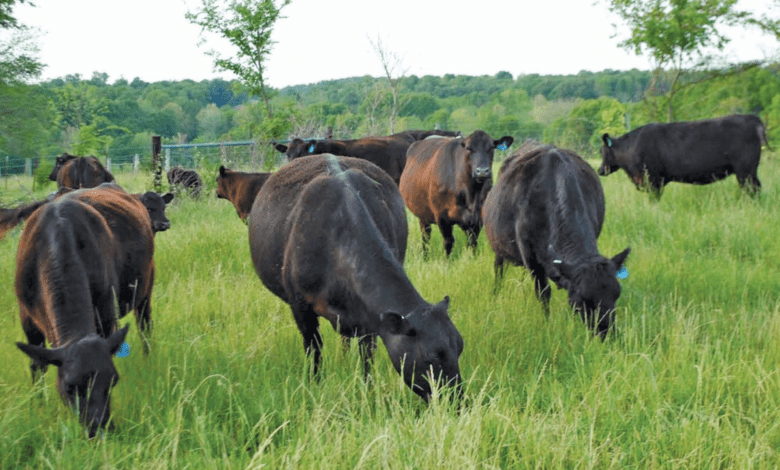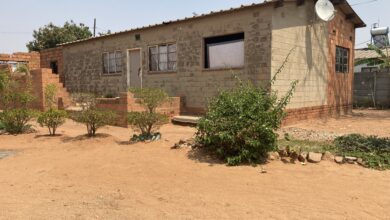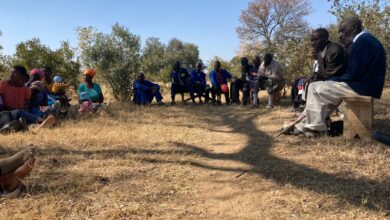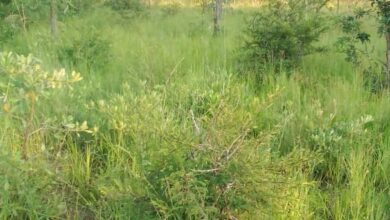Matobo villagers seek return of ancestral grazing land

Villagers in Matobo district’s wards 11 and 12 under Chief Bango in Matabeleland South faced with an acute challenge of pastures are seeking the return of their ancestral grazing land, which was gazetted into farms by the government in 1989.
The land in question – farms under the Marula Bloc – is in the neighbouring Mangwe District just across Simukhwe River, the boundary between Matobo and Mangwe.
Chief Justice Luke Malaba’s farm is just a stone’s throw from the area.
The area was previously occupied by some of Chief Bango’s subjects before they were forcefully moved across the river between 1930 and 1940 during the colonial period to pave way for white farms.
The affected villages include Sontala, Silonkwe, Mloyi, Mbembeswana, Mbuso, Gubula, koMkandla, and some parts of Zamanyoni.
The conflict between villagers and the white settlers continued until independence in 1980 when whites donated the grazing lands (six farms) that were close to communities with a boundary being agreed upon.
However, in 1989, the government took over all the 47 farms in the area including the six that had already been ceded to the community although villagers continued to have access to them.
Around 2018 some farmers who were allocated farms in the areas started fencing the place blocking villagers’ livestock from accessing pastures, something which has riled the community.
Villagers told CITE, that under unclear circumstances, one land officer Luke Mapiliyawo, then based in Mangwe, allegedly allocated farmers land under lease agreements.
Recently, in a strongly worded petition to Matabeleland South Provincial Affairs Minister, Abednico Ncube, villagers demanded the return of their grazing land.
Out of frustration and inaction from responsible authorities, some villagers have resorted to cutting farm fences to allow their cattle to access pastures.
Last week two villagers were arrested in the area in connection with the cutting of a farm fence, including Bernard Ndlovu (54) who had been tasked by villagers to hand over the petition to the District Development Coordinator (DDC) before it could reach the provincial minister.
The other villager is Luka Ndlovu, who was later released without a charge after two days.
“Villagers are being arrested after writing a petition to the provincial minister complaining about their grazing land that is being taken away,” said one villager who declined to be named fearing victimisation.
“Villages facing a very desperate situation after their grazing land of 42 years being fenced out resorted to cutting the fence so that their cattle can access their pastures, thousands of cattle are facing starvation. The situation is very bad, thousands of cattle belonging to the community are facing starvation.”
He added: “By taking away our pastures, they are putting us back to the conditions that we lived under during the Rhodesian era. There is no reason to celebrate independence without our land.”
The lawyer representing the villagers, Prince Butshe of Mathonsi Law Chambers confirmed on Friday, the arrest of Ndlovu who is facing allegations of malicious damage to property.
He said Ndlovu, who appeared in court before a Plumtree magistrate, is out of custody on ZWL$20, 000 bail.
Ndlovu is set to reappear in court on September 27.
Another villager said the issue was giving them sleepless nights.
“We are very bitter about the grazing land. We don’t know who can help us so we can have access to pastures that had been handed to us by whites – the likes of Busumani and others,” he told CITE.
“It appears the same pastures have once again been taken by people with money. We had thought the pastures would remain in the hands of the community. It’s like we replaced the white regime with that one of blacks. Pastures remain in the hands of the minority, about five or six people when the majority are landless.”
He said about 18, 000 of their cattle have nowhere to graze.
“This is not a political issue, we are talking about pastures,” he emphasized.
Chief Bango however refused to comment on the issue.
“For now, I cannot say a word,” he said. “All that you are saying has not reached me.”
He was, however, tight-lipped when asked if he ever saw the villagers’ petition.
“Ahaaaa, wait, I will come back to you,” he said.
Matobo North legislator, Edgar Moyo, said the issue has remained unresolved for quite some time.
“We spoke about it, it involved the Council and other stakeholders looking at alternative farms they were given – the three-tier farms,” said the lawmaker.
“They (villagers) complained that those farms were far away from their homes. Initially, they had spoken about the Cold Storage Company farm. I then called CSC people from their head office and those renting that farm but it appeared it would be difficult for them to reach an agreement with the government.”
Moyo said they ended up resolving to send Chief Bango to request for pastures in Mangwe since his jurisdiction covers both Matobo and Mangwe.
“After COVID we then resolved that the DA, Ward12 councillor and Chief Bango should engage the farmers,” he said.
“There was only one person who was willing to give them a farm. We are currently working on further engagements. We are actively working on that because the mainstay of people’s livelihoods there is their cattle, so every effort must be made and the government’s position is that livestock is very important to the people of Matabeleland.”
Matobo DDC, Obey Chaputsira said it was not true that the land in the centre of the dispute belongs to the community.
“If they say their grazing area is being taken away from them then that’s a false presentation of the facts because those farms were gazetted by the government in 1989 and they were given to individuals through a legal process,” said Chaputsira.
“It was done above board and those people who are occupying those farms, some have title deeds others have offer letters. Yes, we accept that there is a problem, the community does not have a grazing area and we have had a number of engagements both with the community and the owners of those farms and some of the farmers, who own those farms have even given grazing to that community.”
He said it was unfortunate that the issue was being blown out of proportion.
“You know sometimes communities tend to blow issues out of proportion,” he decried.
“Many of the farmers have given the community some grazing areas and are in the process of drawing some formal agreements. Once they formalise there will be enough grazing area.”






